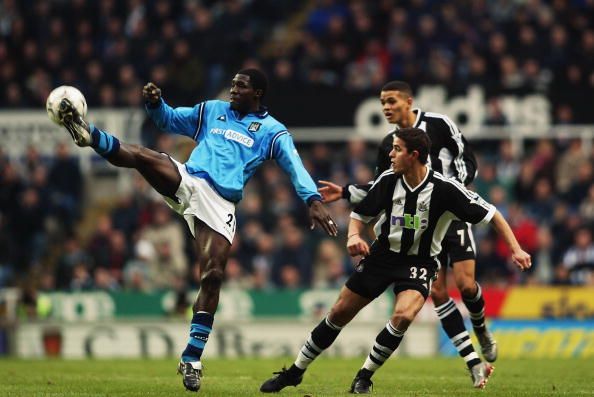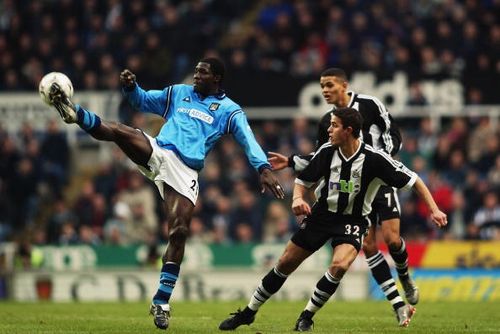
Remembering a Football Hero: Marc-Vivien Foé

Marc Vivien Foe
Although I have witnessed death before, I have never written about it. How do you capture someone’s last moments, especially when they come so suddenly? The best one can do then is to pen a heartfelt eulogy.
They say you are to expect the unexpected in the game of football, but I am quoting that euphemism to describe what happened to Marc Vivien-Foé on the pitch of the Stade Municipal de Gerland in Lyon ten years ago. Never again has football been the same.
On the 26th of June, 2003, in the 72nd minute of Cameroon’s semi-final clash against Colombia at the 2003 Confederations Cup in France, Foé collapsed in the centre circle and died of a heart attack. Today, the world of football remembers him for the larger-than-life athlete that he was and I would like you to join me in doing so.
A perfect example to follow
Football fans – nay, people, in Africa – consider some of their best footballers to be role models for their exemplary work both on and (more importantly) off the pitch. Samuel Eto’o, Didier Drogba, Frédéric Kanouté and the Toure brothers Kolo and Yaya are all looked up to by the youth of Africa and the rest of the world as examples of individuals who made name for themselves after battling poverty and troubled political landscape before giving back to the community that they are a part of.
Foé was yet another outstanding example of this breed of sportsmen. As said in the football magazine When Saturday Comes:
“Marc-Vivien Foé was an early developer. A first team regular for Cameroon’s top club Canon Yaoundé at 17, an international at 18, a World Cup player at 19, he won his first transfer to Europe when he signed a contract shortly after his 20th birthday to join Lens”.
- Craig McCracken, When Saturday Comes, the Half-decent Football Magazine
Foé’s time at Lens was successful, and with his domineering talents in midfield, the club from the Pas-de-Calais won the Ligue 1 title in 1997. That no-nonsense tough-tackling ability garnered the attention of Europe’s leading lights with Sir Alex Ferguson heading the queue.
But while Manchester United were very keen on signing the Cameroonian, he was to be denied a chance at playing at the Theatre of Dreams alongside Roy Keane, David Beckham, Paul Scholes, Nicky Butt and the brothers Neville when he suffered a bad leg break in his country’s preparations for the 1998 FIFA World Cup.
He missed the showpiece event in France and United’s interest faded. But the 6’4″ man-mountain had to move on due to RC Lens rapidly disintegrating. He jumped at the opportunity to move to West Ham and the Premier League for a then-record club signing of £4.2 million.